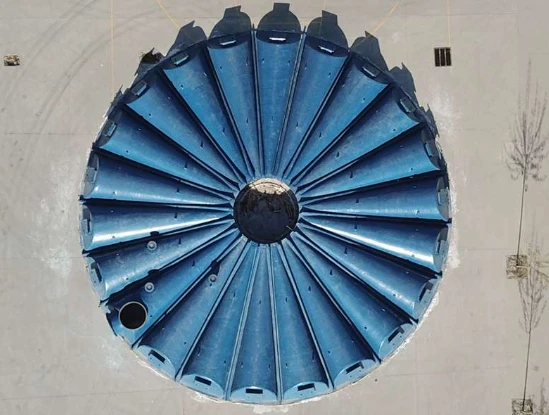
-
 Afrikaans
Afrikaans -
 Albanian
Albanian -
 Amharic
Amharic -
 Arabic
Arabic -
 Armenian
Armenian -
 Azerbaijani
Azerbaijani -
 Basque
Basque -
 Belarusian
Belarusian -
 Bengali
Bengali -
 Bosnian
Bosnian -
 Bulgarian
Bulgarian -
 Catalan
Catalan -
 Cebuano
Cebuano -
 China
China -
 China (Taiwan)
China (Taiwan) -
 Corsican
Corsican -
 Croatian
Croatian -
 Czech
Czech -
 Danish
Danish -
 Dutch
Dutch -
 English
English -
 Esperanto
Esperanto -
 Estonian
Estonian -
 Finnish
Finnish -
 French
French -
 Frisian
Frisian -
 Galician
Galician -
 Georgian
Georgian -
 German
German -
 Greek
Greek -
 Gujarati
Gujarati -
 Haitian Creole
Haitian Creole -
 hausa
hausa -
 hawaiian
hawaiian -
 Hebrew
Hebrew -
 Hindi
Hindi -
 Miao
Miao -
 Hungarian
Hungarian -
 Icelandic
Icelandic -
 igbo
igbo -
 Indonesian
Indonesian -
 irish
irish -
 Italian
Italian -
 Japanese
Japanese -
 Javanese
Javanese -
 Kannada
Kannada -
 kazakh
kazakh -
 Khmer
Khmer -
 Rwandese
Rwandese -
 Korean
Korean -
 Kurdish
Kurdish -
 Kyrgyz
Kyrgyz -
 Lao
Lao -
 Latin
Latin -
 Latvian
Latvian -
 Lithuanian
Lithuanian -
 Luxembourgish
Luxembourgish -
 Macedonian
Macedonian -
 Malgashi
Malgashi -
 Malay
Malay -
 Malayalam
Malayalam -
 Maltese
Maltese -
 Maori
Maori -
 Marathi
Marathi -
 Mongolian
Mongolian -
 Myanmar
Myanmar -
 Nepali
Nepali -
 Norwegian
Norwegian -
 Norwegian
Norwegian -
 Occitan
Occitan -
 Pashto
Pashto -
 Persian
Persian -
 Polish
Polish -
 Portuguese
Portuguese -
 Punjabi
Punjabi -
 Romanian
Romanian -
 Russian
Russian -
 Samoan
Samoan -
 Scottish Gaelic
Scottish Gaelic -
 Serbian
Serbian -
 Sesotho
Sesotho -
 Shona
Shona -
 Sindhi
Sindhi -
 Sinhala
Sinhala -
 Slovak
Slovak -
 Slovenian
Slovenian -
 Somali
Somali -
 Spanish
Spanish -
 Sundanese
Sundanese -
 Swahili
Swahili -
 Swedish
Swedish -
 Tagalog
Tagalog -
 Tajik
Tajik -
 Tamil
Tamil -
 Tatar
Tatar -
 Telugu
Telugu -
 Thai
Thai -
 Turkish
Turkish -
 Turkmen
Turkmen -
 Ukrainian
Ukrainian -
 Urdu
Urdu -
 Uighur
Uighur -
 Uzbek
Uzbek -
 Vietnamese
Vietnamese -
 Welsh
Welsh -
 Bantu
Bantu -
 Yiddish
Yiddish -
 Yoruba
Yoruba -
 Zulu
Zulu
frp rectangular tube
Understanding FRP Rectangular Tubes Applications and Advantages
Fiber Reinforced Polymer (FRP) materials have revolutionized various engineering fields, particularly in structural applications. Among the various shapes used, FRP rectangular tubes stand out due to their unique combination of high strength, lightweight, and corrosion resistance. This article delves into the characteristics, advantages, and applications of FRP rectangular tubes.
What is FRP?
FRP is a composite material made from a polymer matrix reinforced with fibers, typically glass, carbon, or aramid. The combination of these materials offers superior mechanical properties compared to traditional materials like steel and aluminum. FRP materials are known for their ability to withstand harsh environmental conditions, making them ideal for a variety of structural applications.
Characteristics of FRP Rectangular Tubes
FRP rectangular tubes are characterized by their geometric shape and the reinforcement structure that enhances their mechanical properties. The flat surfaces of rectangular tubes allow for easy integration into various architectural designs and structural frameworks, making them a popular choice in construction and manufacturing.
1. High Strength-to-Weight Ratio One of the most significant advantages of FRP rectangular tubes is their exceptional strength-to-weight ratio. This allows engineers to design lighter structures without compromising strength, which is especially important in applications where weight savings are critical, such as in aerospace and automotive industries.
2. Corrosion Resistance Unlike traditional metal structures that are prone to rust and corrosion, FRP materials are highly resistant to chemical degradation. This property makes FRP rectangular tubes ideal for use in environments that are corrosive, such as marine applications or chemical processing industries.
3. Thermal Insulation FRP composite materials offer better thermal insulation compared to metals. This is beneficial in applications where temperature control is crucial, helping to maintain optimal conditions within structures or equipment.
4. Versatile Design Options The manufacturing process of FRP allows for versatility in design. Engineers can achieve various shapes and sizes according to specific project requirements. The available colors and surface finishes can also enhance the aesthetic appeal of structures.
frp rectangular tube

Applications of FRP Rectangular Tubes
The applications of FRP rectangular tubes span across various industries, reflecting their versatility and reliability.
1. Construction and Infrastructure In civil engineering, FRP rectangular tubes are used for beams, columns, and other structural components. Their lightweight nature helps reduce transportation costs and makes the installation process more efficient. Additionally, they are utilized in bridges and walkways where corrosion resistance is essential.
2. Aerospace and Automotive Due to their lightweight and high-strength properties, FRP rectangular tubes are increasingly being used in the aerospace and automotive industries. They contribute to fuel efficiency and enhance overall performance by reducing the weight of components without sacrificing safety.
3. Marine Applications The marine environment poses significant challenges due to saltwater and humidity. FRP rectangular tubes are utilized in the construction of docks, boats, and other watercraft components, where their corrosion resistance is invaluable.
4. Sports Equipment The lightweight and strong characteristics of FRP materials have led to their use in sporting equipment, such as racquets, bicycles, and other athletic gear, allowing for enhanced performance.
5. Industrial Applications Beyond construction and consumer goods, FRP rectangular tubes find their use in manufacturing equipment, chemical processing systems, and electrical enclosures, proving essential in industrial settings where durability and resistance to harsh conditions are critical.
Conclusion
FRP rectangular tubes represent a significant advancement in material science and engineering. Their unique properties, such as high strength-to-weight ratio, corrosion resistance, and versatile design options, make them suitable for a wide range of applications. As industries continue to seek materials that offer efficiency and durability, FRP rectangular tubes are poised to play a pivotal role in the future of construction, transportation, and manufacturing. With ongoing advancements in FRP technology, we can expect even broader applications and improved performance characteristics in the years to come.









